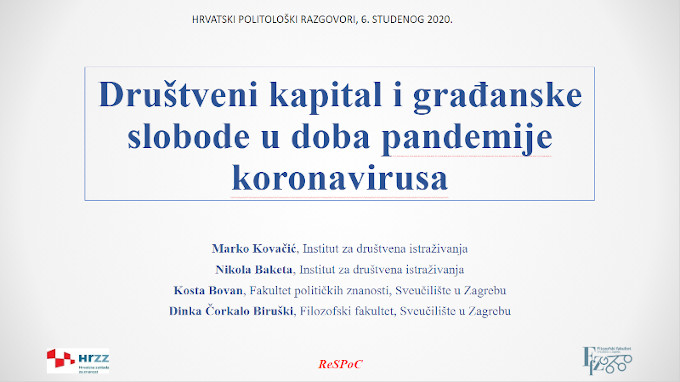Bovan, K., Čorkalo Biruški, D. & Baketa, N. (2022). How political trust influences compliance: Longitudinal follow-up of the coronavirus pandemic experiences in Croatia. ISPP Annual Meeting Democracy as an Achievement: Recognizing Tensions, Challenges, and Aspirations through Political Psychology, Athens, July 14-17.
Political trust is a prerequisite for a well-functioning democratic society; it relates to normative behaviour among citizens, their political participation, and satisfaction with democracy. It seems to be more important in times of social disruptions and crises, such as the COVID-19 pandemic. Studies show that citizens who trust political elites and institutions show higher levels of well-being, adhere more to public health measures (such as maintaining physical distance and wearing a mask), and are more prone to vaccination. However, there is a lack of studies exploring the causal predictors and outcomes of political trust in the ongoing coronavirus pandemic. The aim of this study was to assess the causal relationship between individual experiences with the COVID-19 crisis (health concerns and perception of relative deprivation), political trust, and adherence to public health measures and vaccination intention. A longitudinal study was conducted in three time-points (August 2020; January 2021; and August 2021), and data was collected via CAWI method. We reached Croatian national probabilistic sample with 867 participants included through all three waves. We hypothesized that political trust (in the second wave) would mediate the relationship between experiences with the coronavirus (in the first wave) and adherence to recommended behaviours and vaccination intentions (in the third wave). Preliminary data analyses point to the importance of political trust in compliance to the public health measures and behavioural intentions to COVID-19 vaccination. The results will be discussed by emphasizing importance of political trust in coping with societal threats and crisis.
